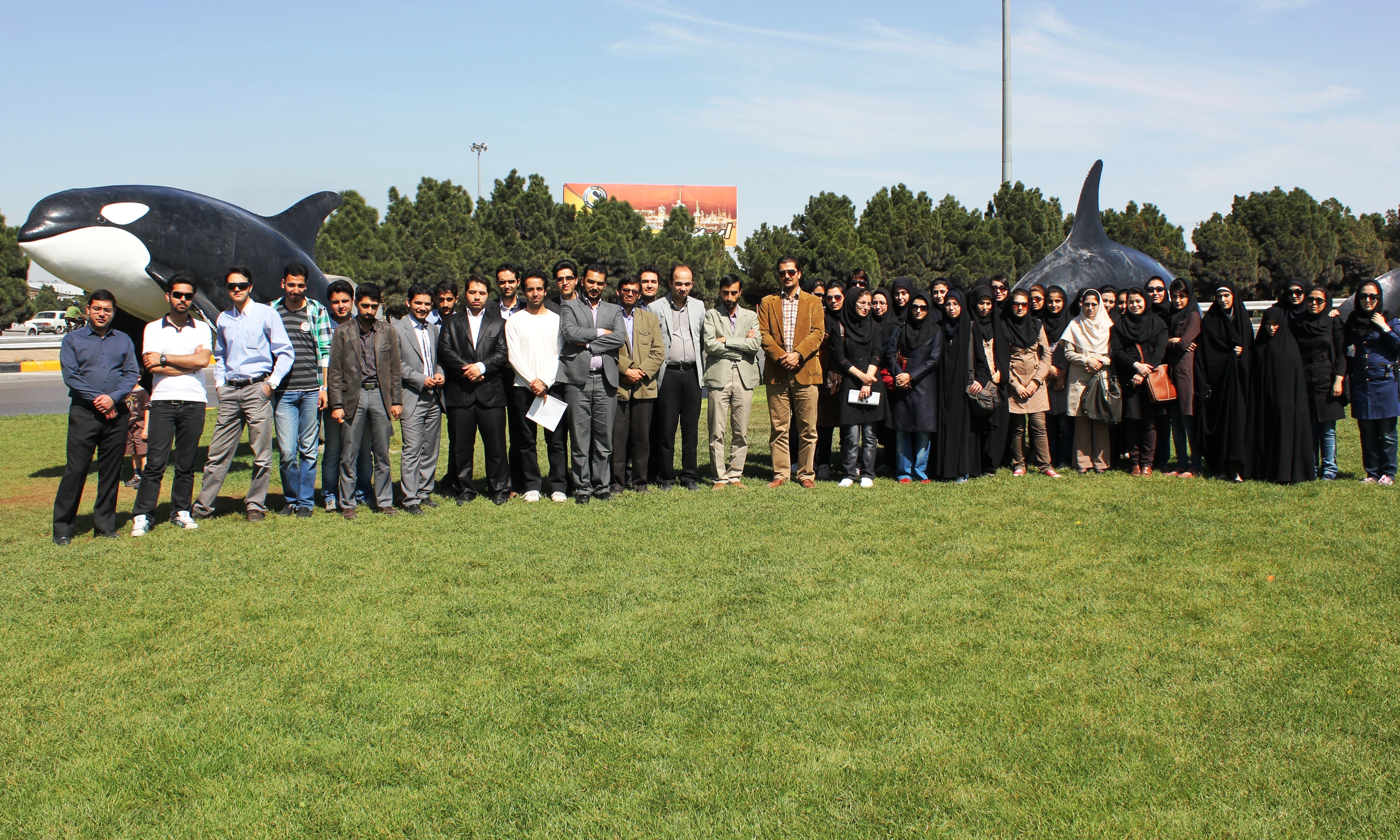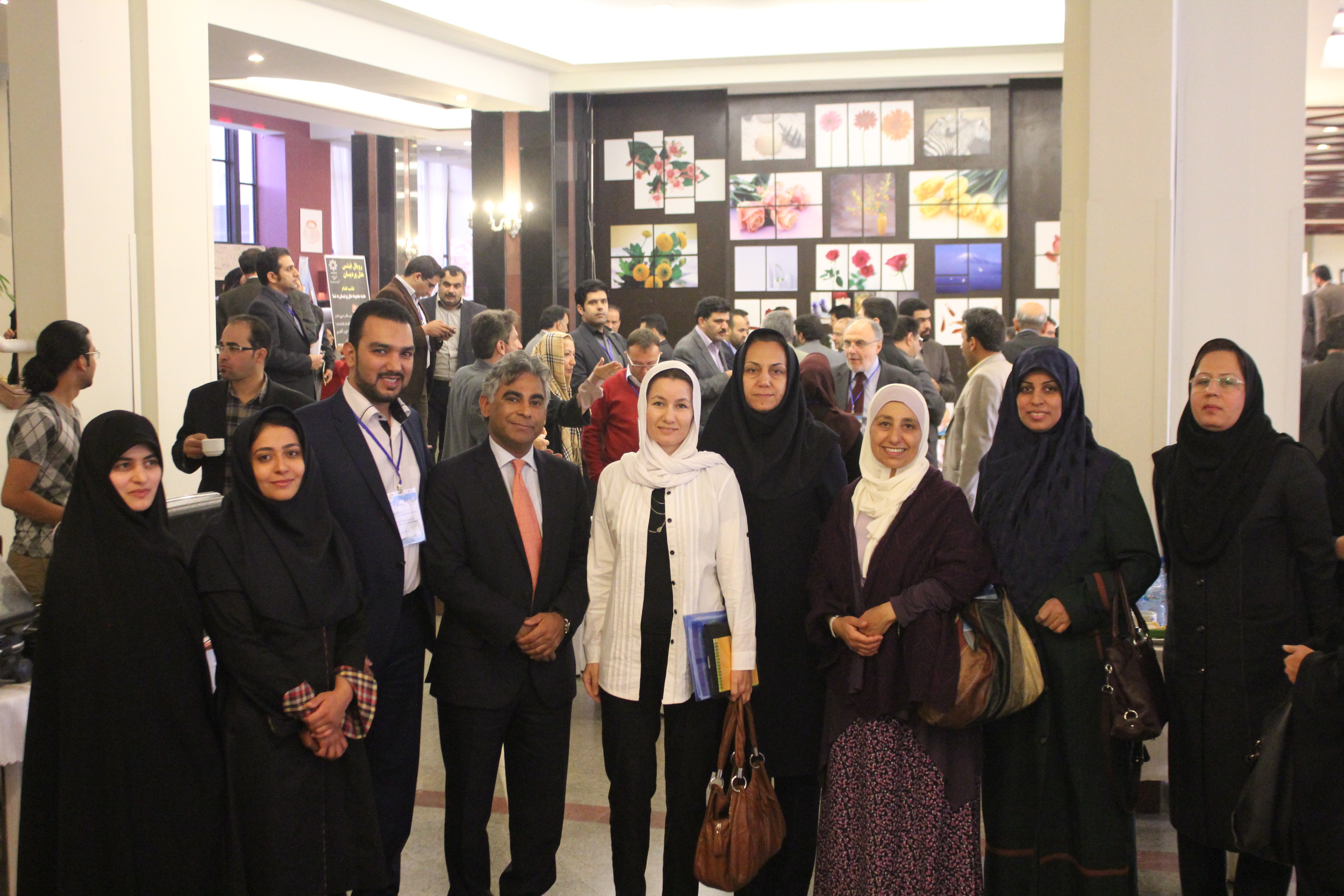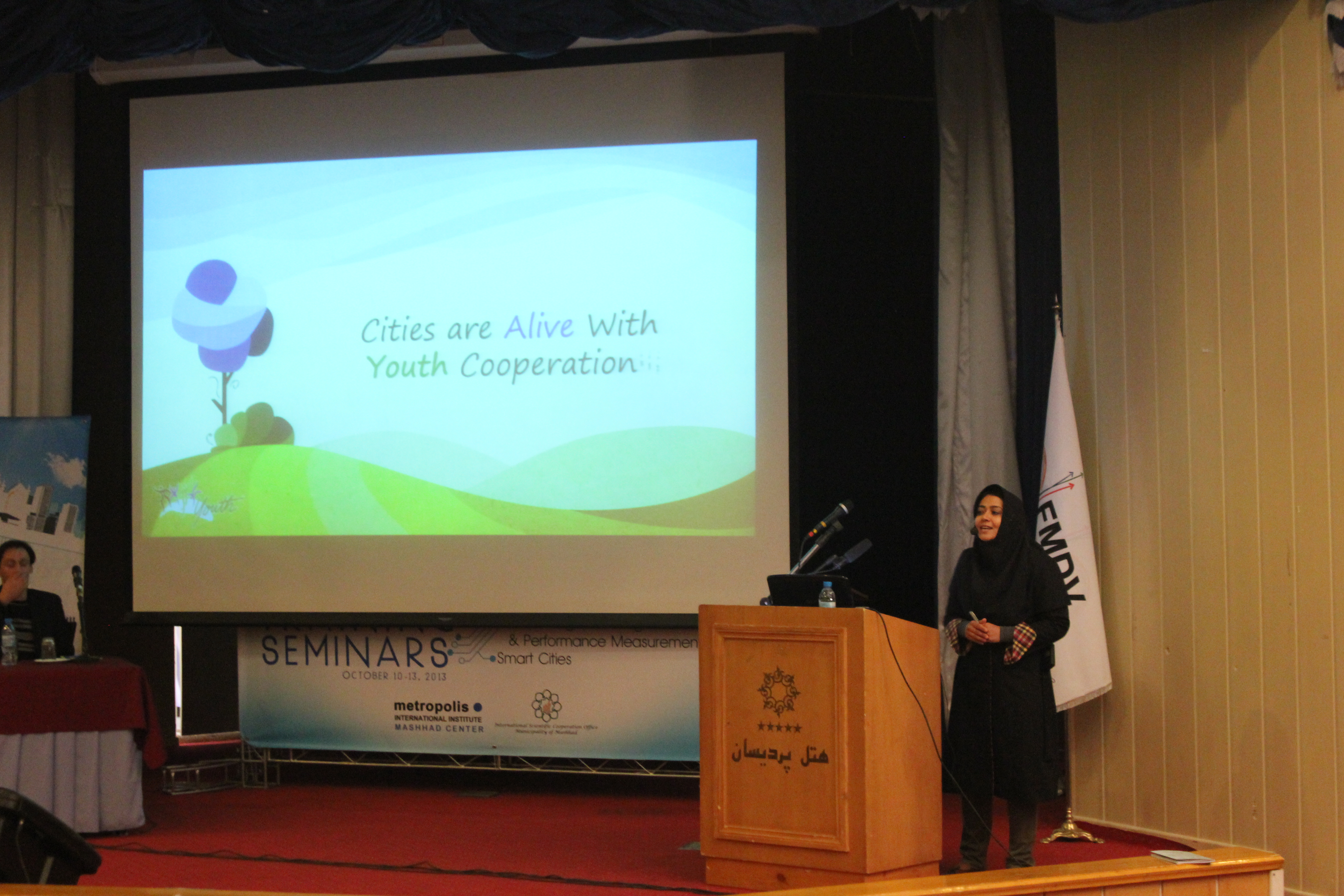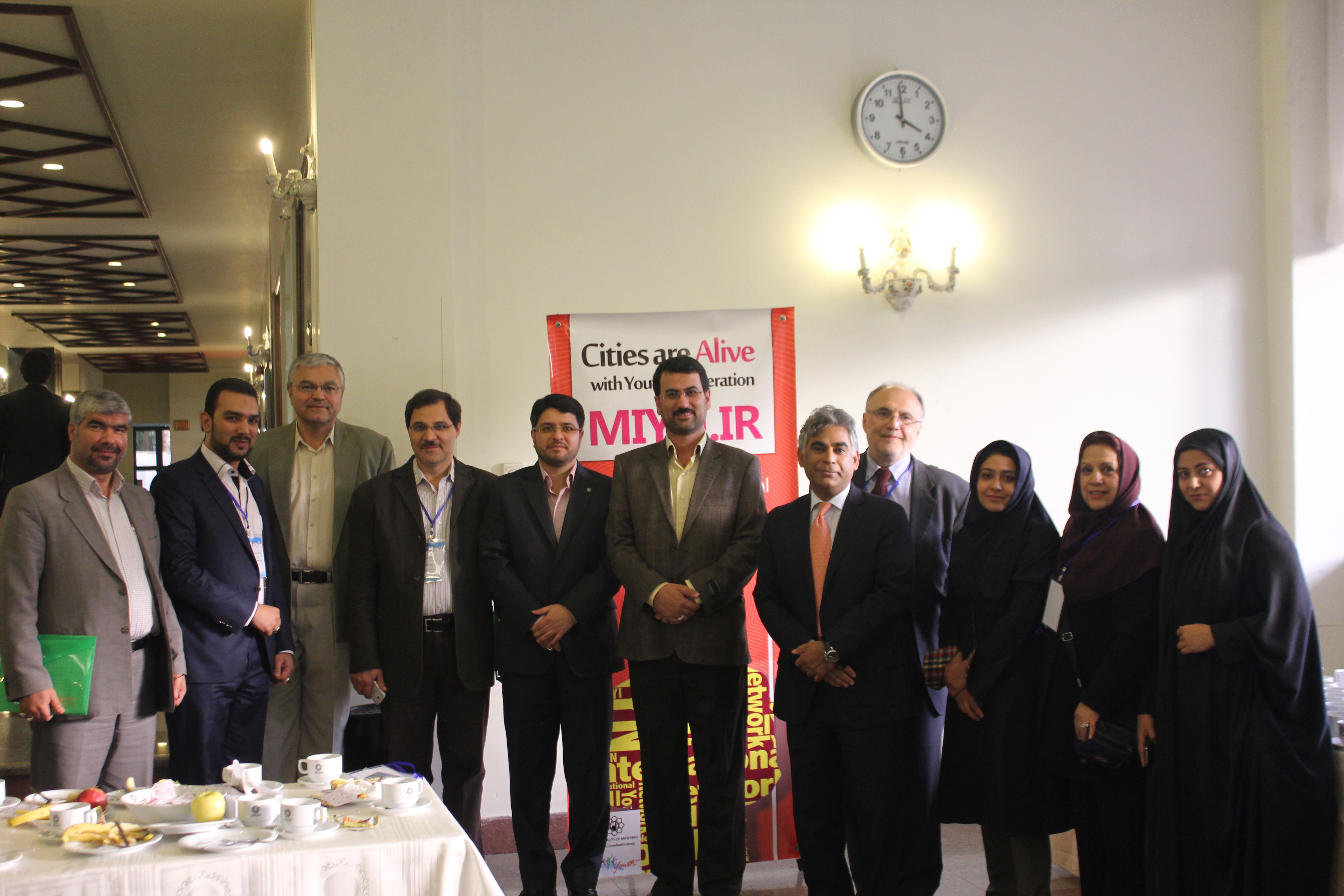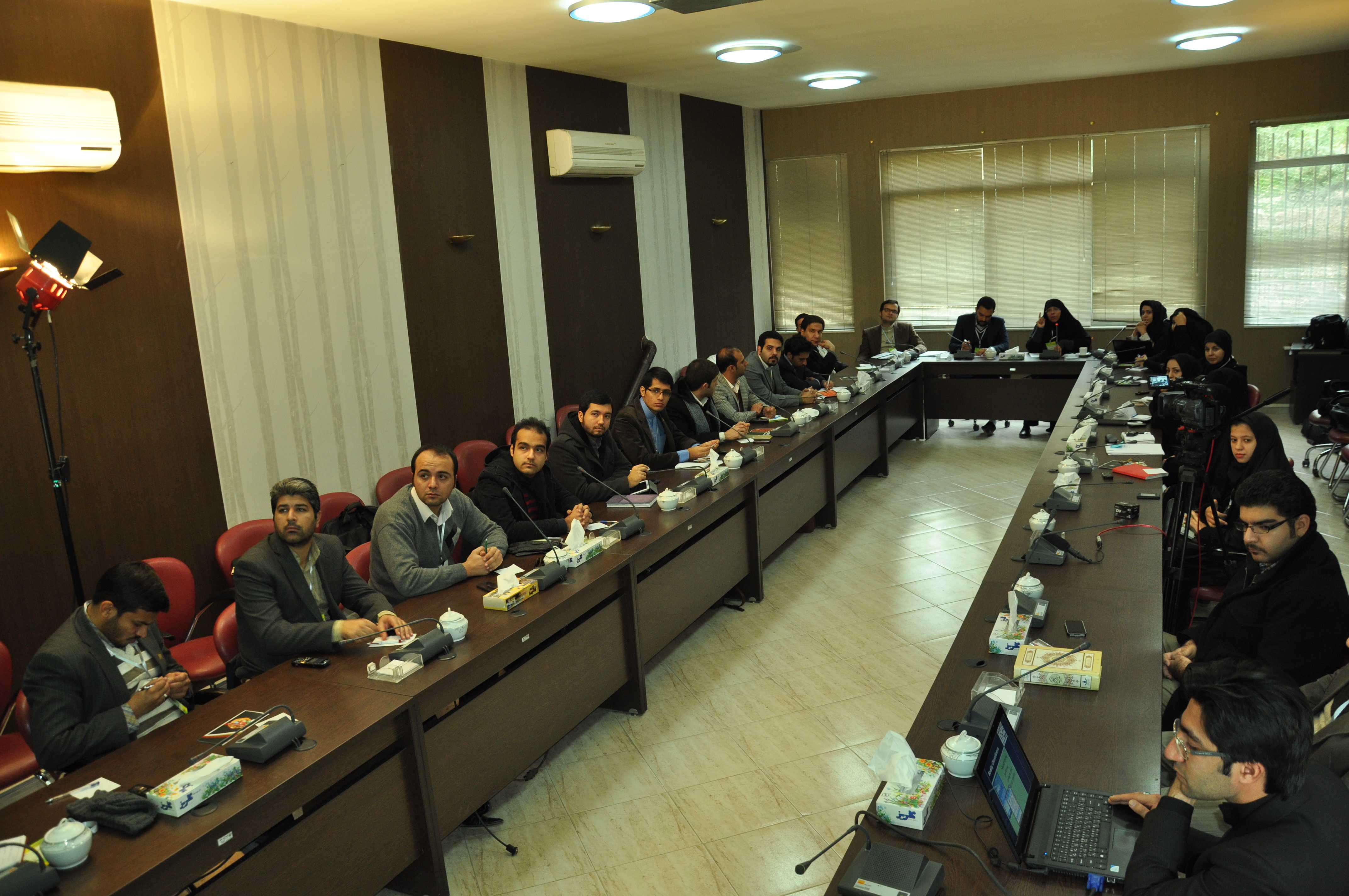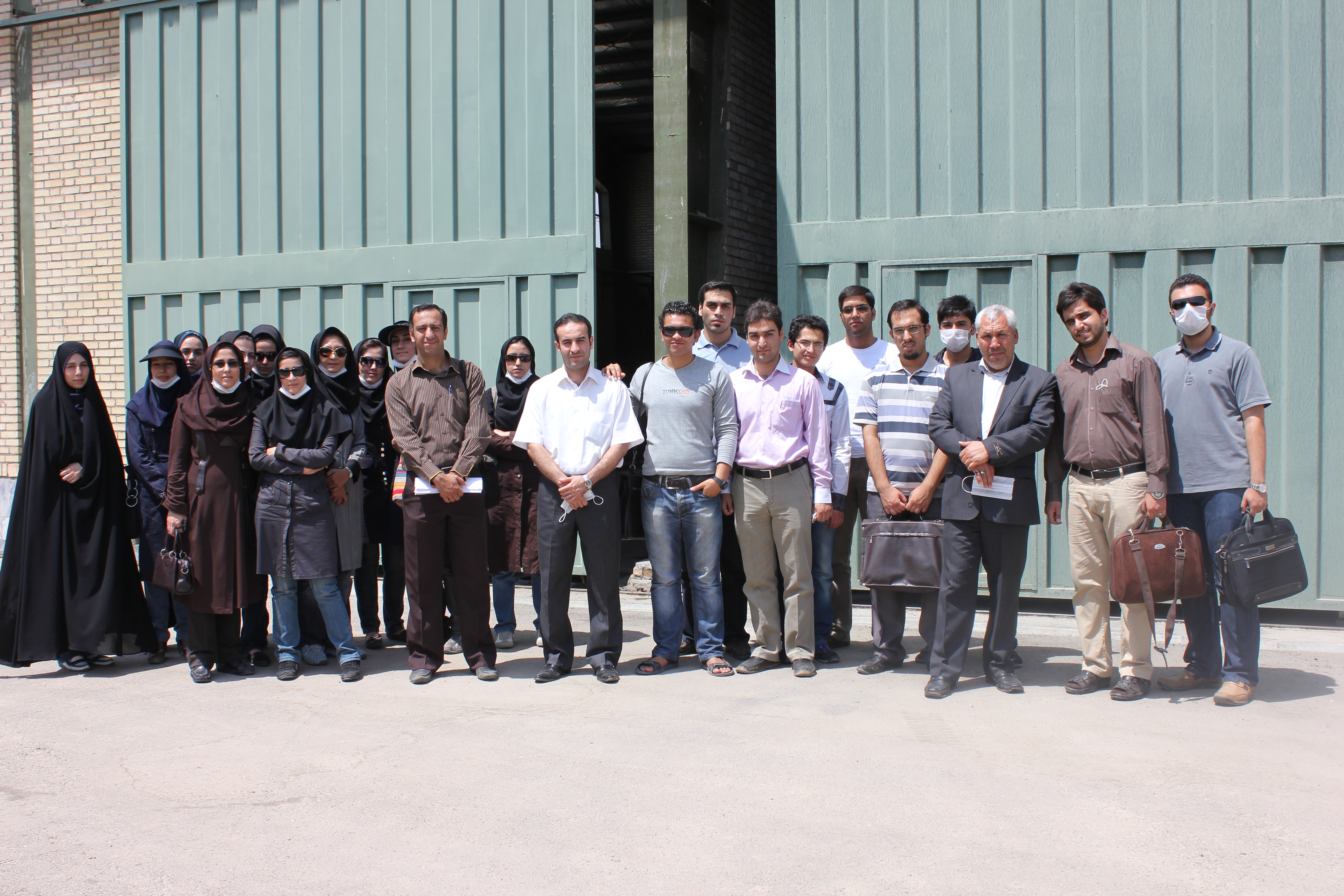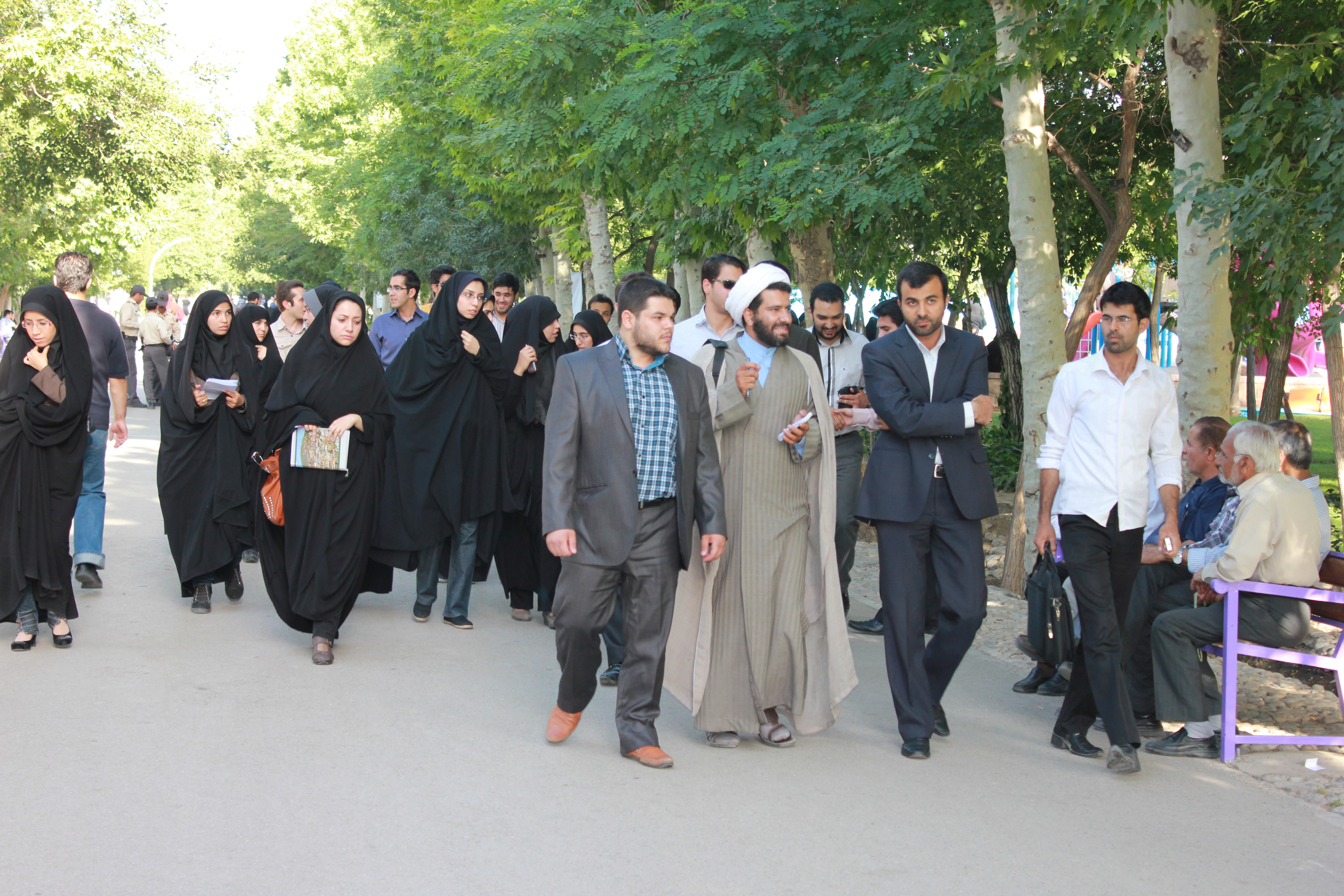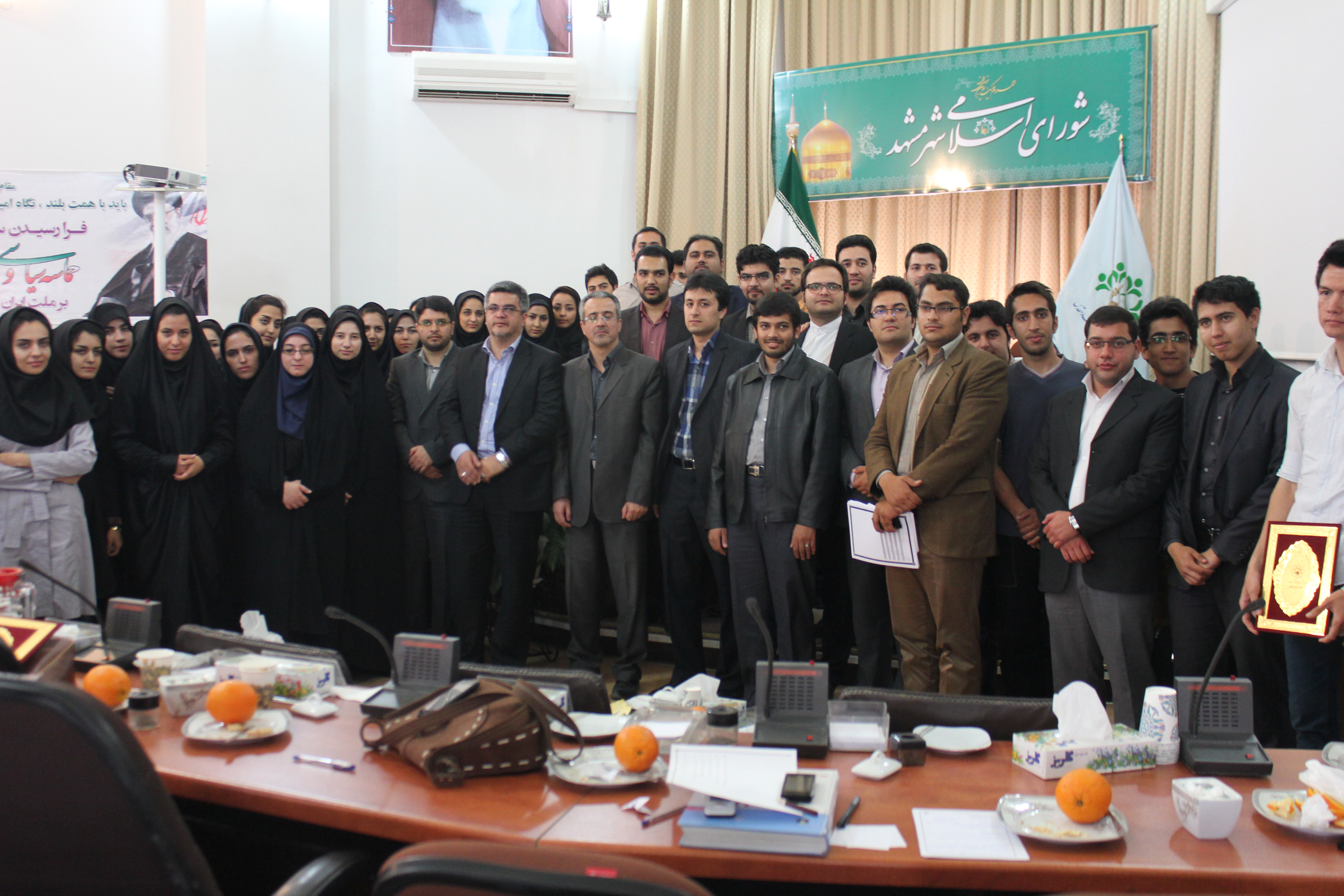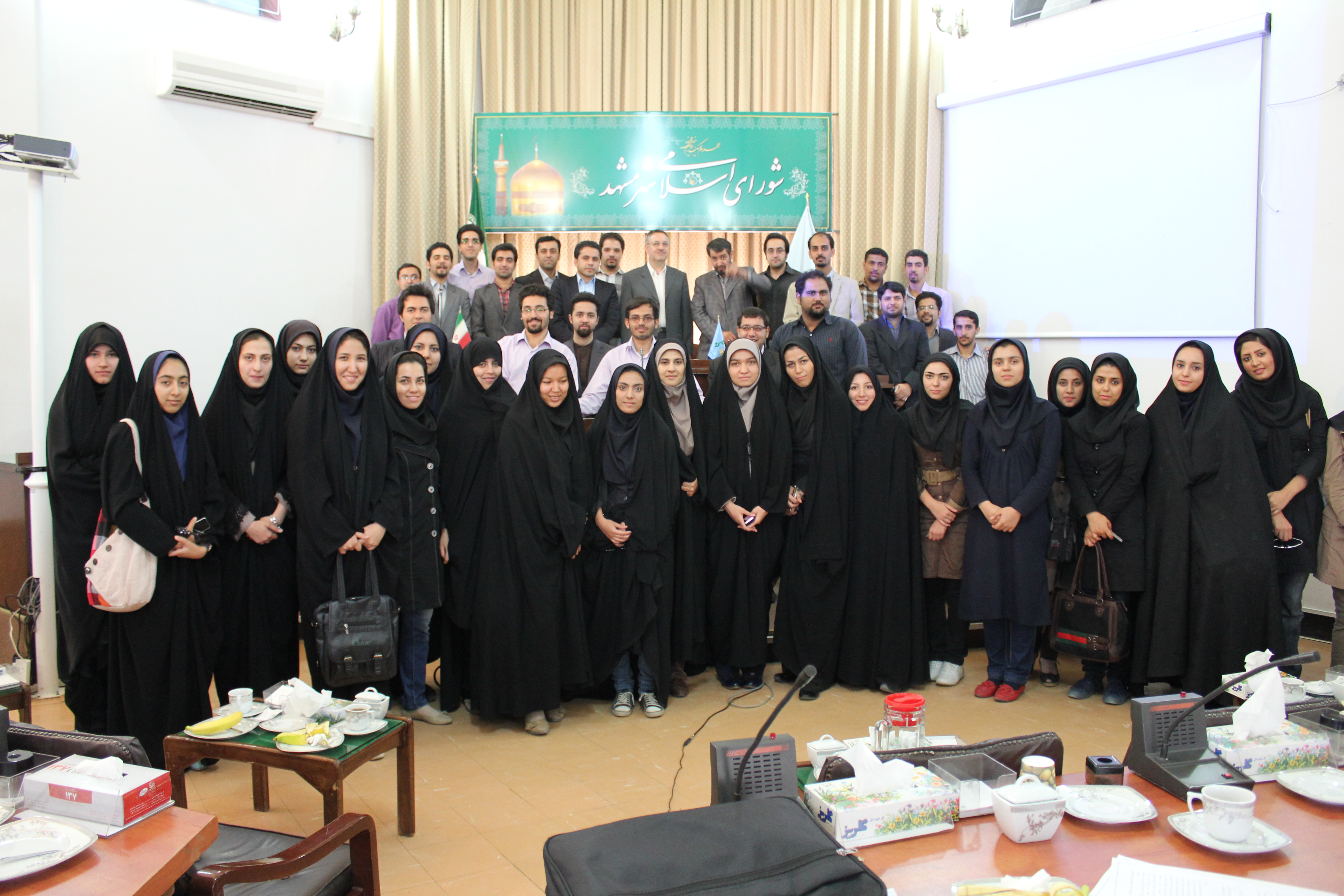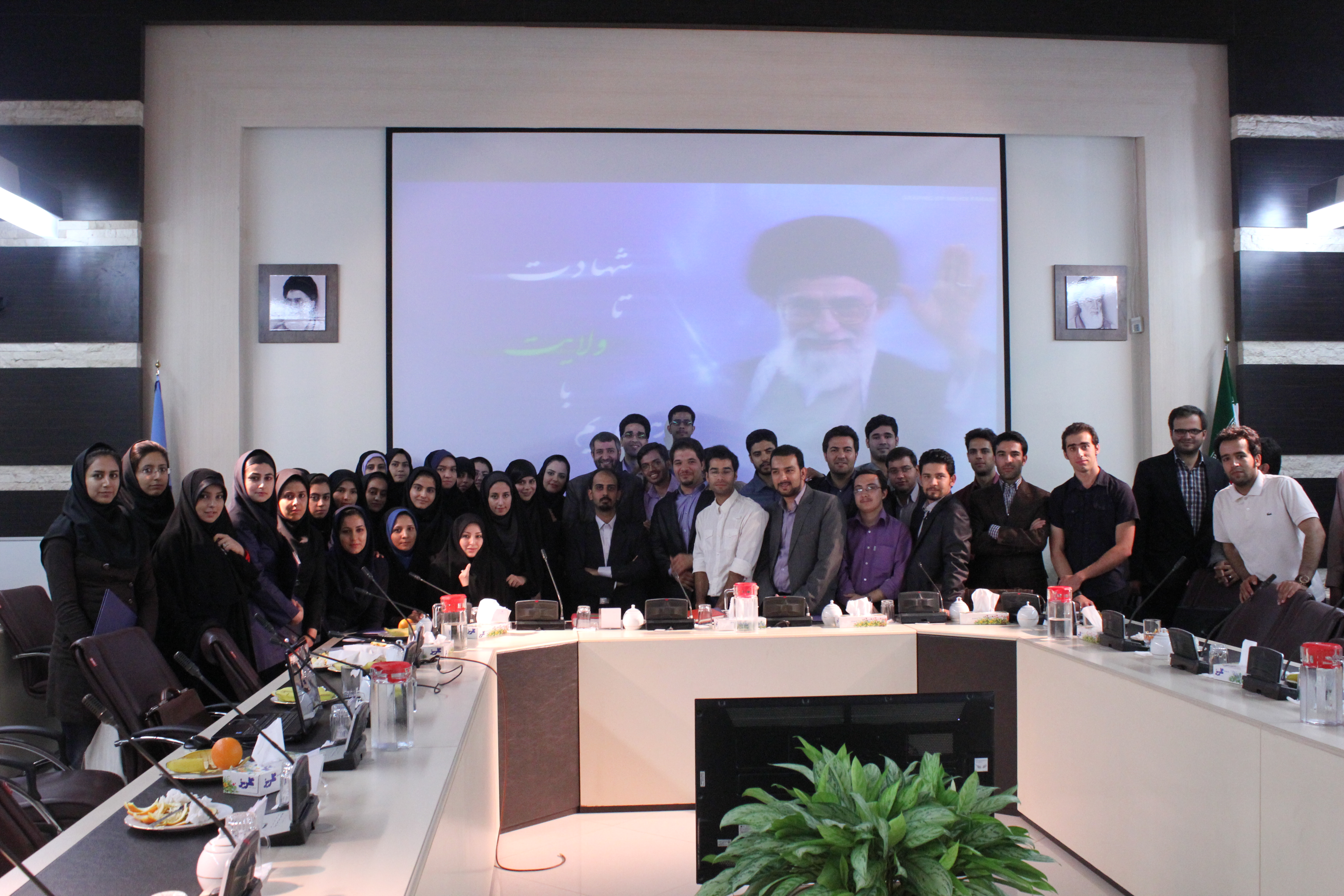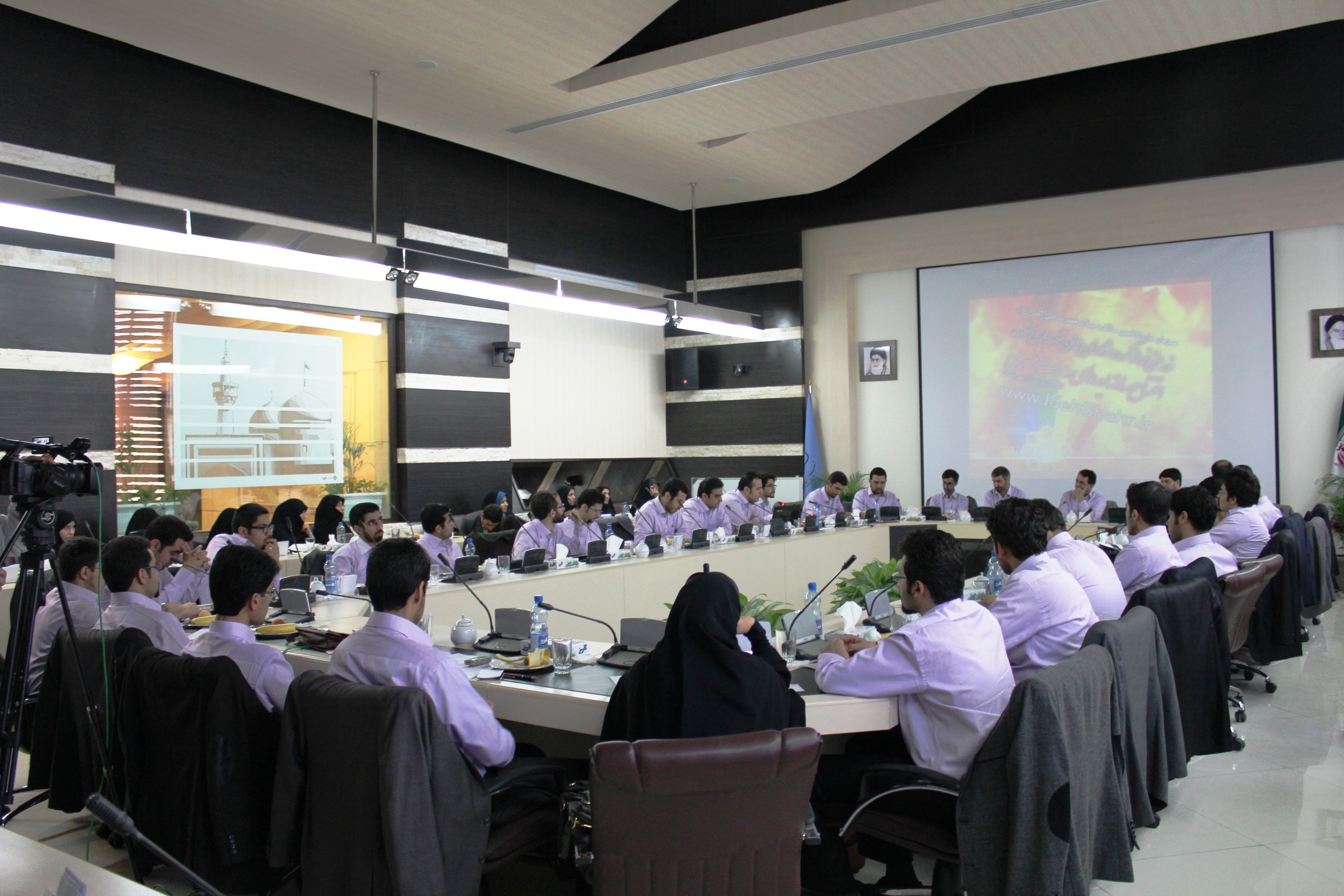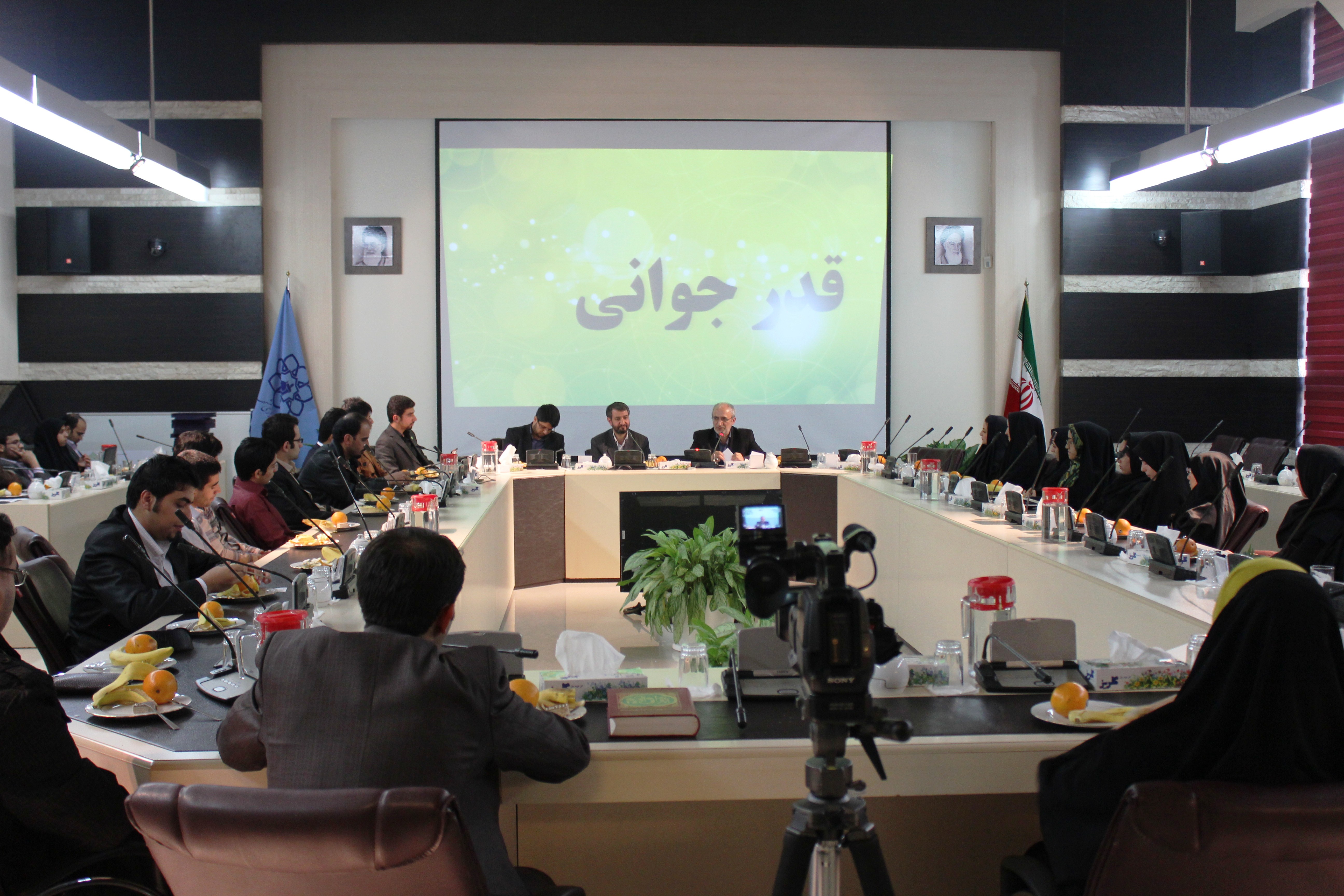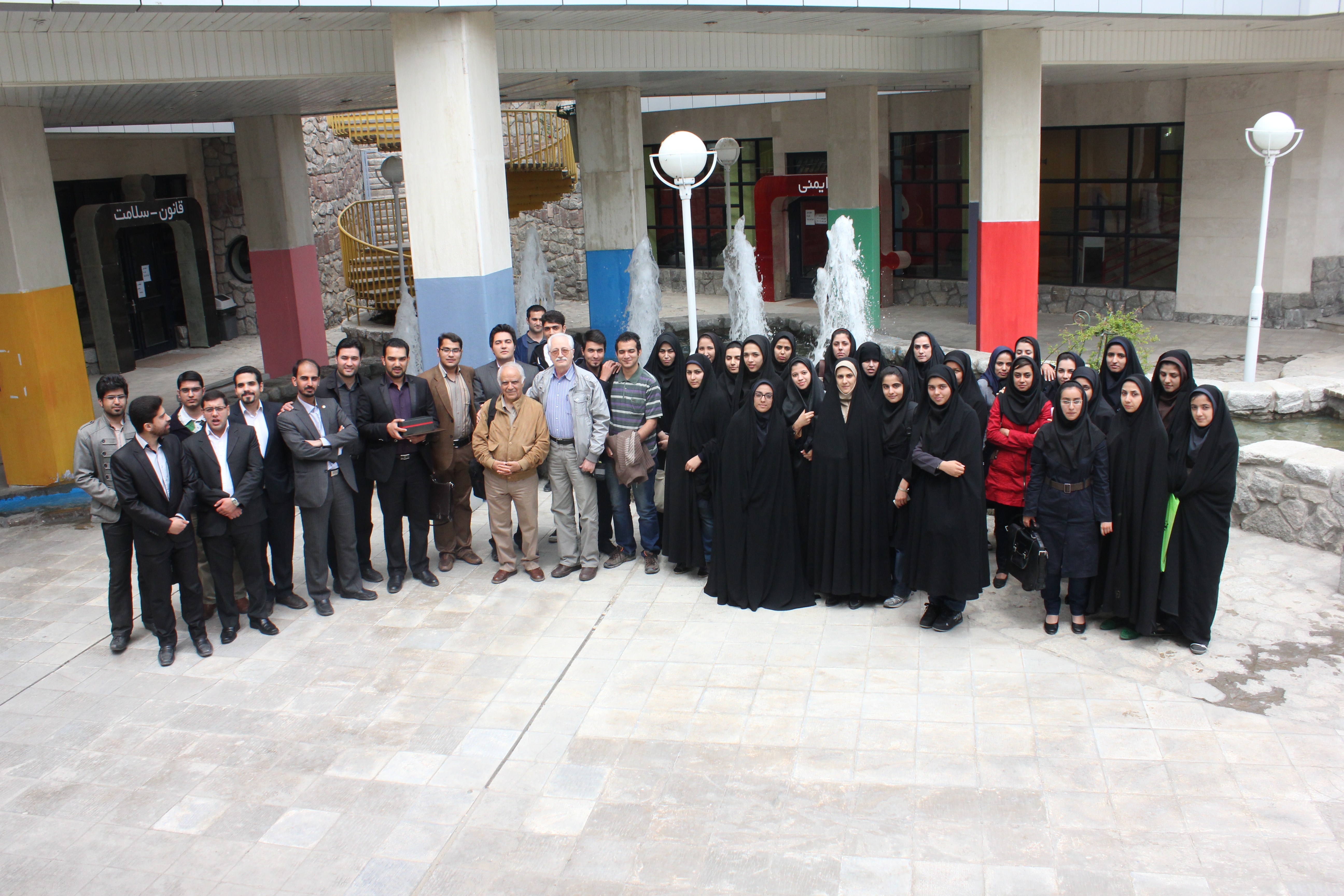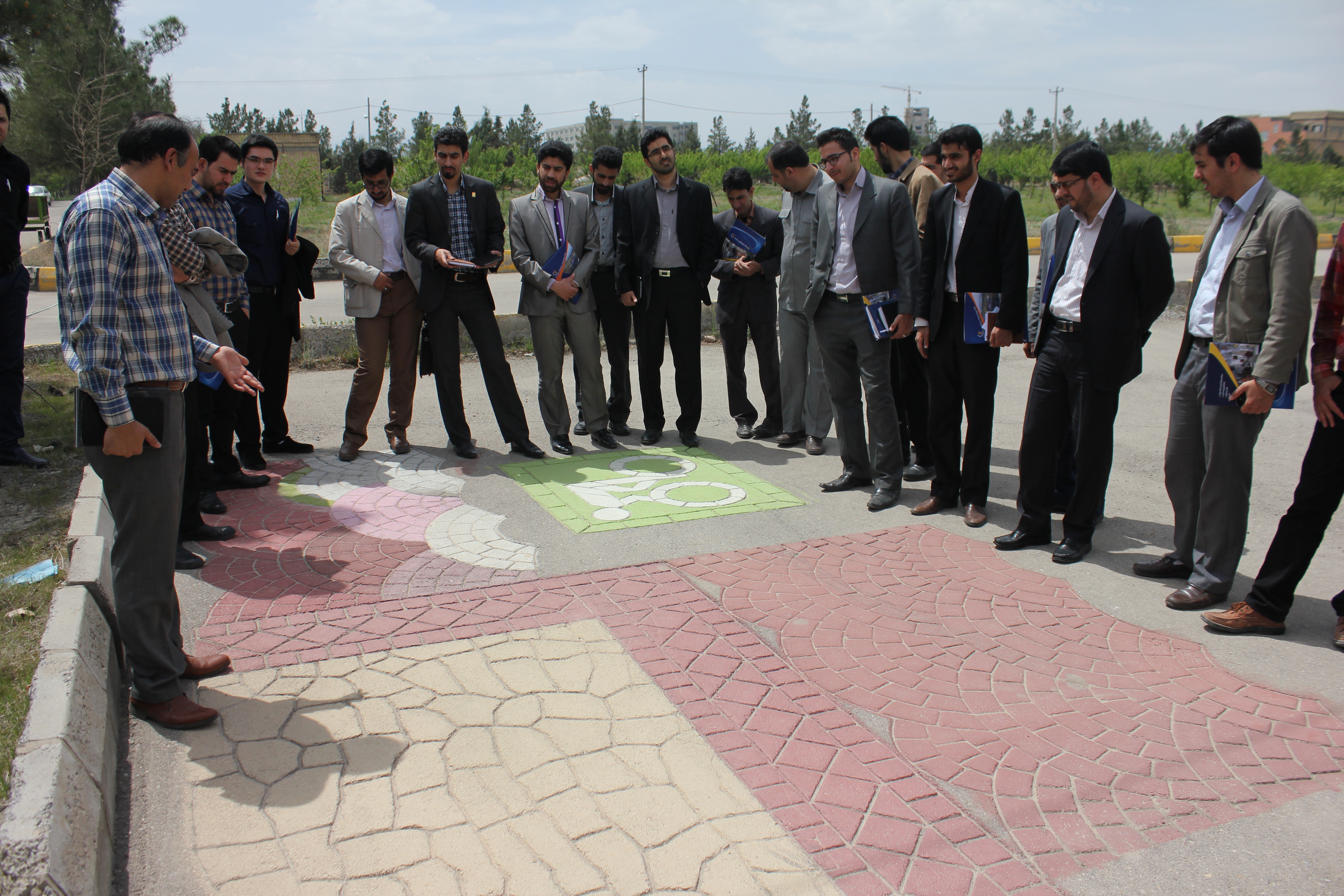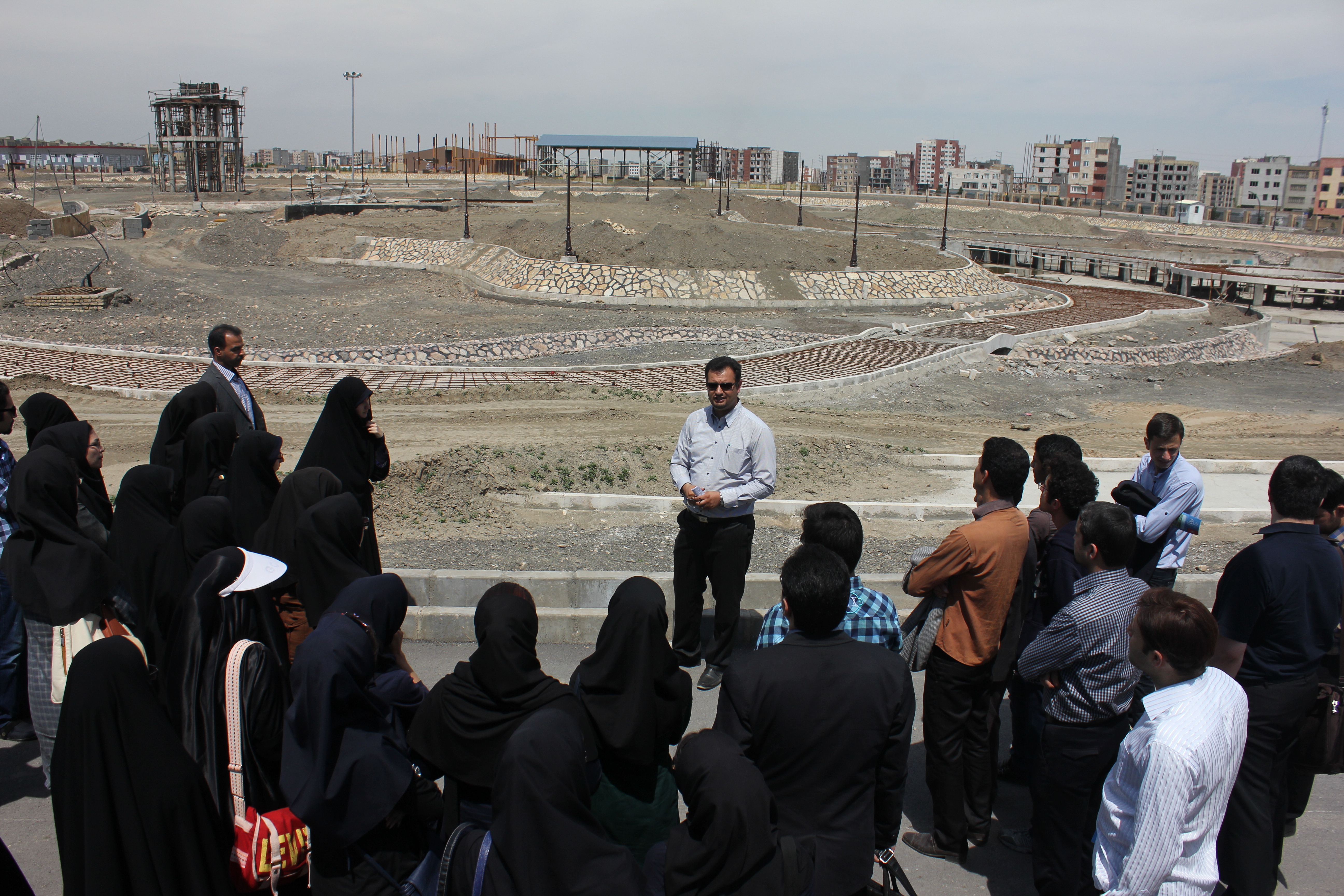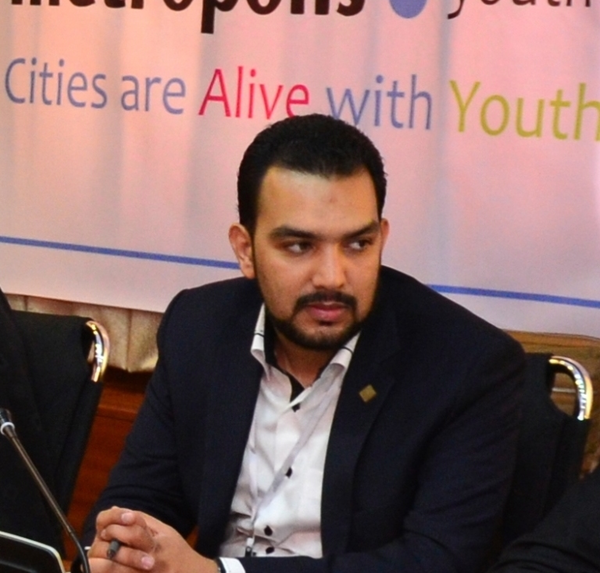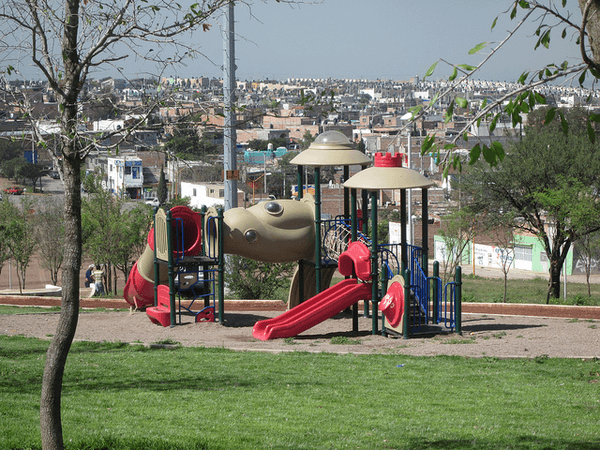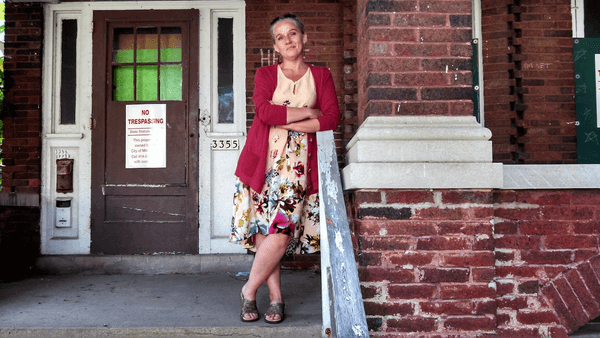- Young Consultants Group, Mashhad, Iran - © Municipality of Mashhad
- Presentation of Idea City Website in Metropolis Smart City Seminar - © Municipality of Mashhad
- Presentation of Idea City Website in Metropolis Smart City Seminar - © Municipality of Mashhad
- Presentation of Idea City Website in Metropolis Smart City Seminar - © Municipality of Mashhad
 Principals of Participation in International Associations Class - © Municipality of Mashhad
Principals of Participation in International Associations Class - © Municipality of Mashhad- Principals of Participation in International Associations Class - © Municipality of Mashhad
- Visit of Recycling Factory - © Municipality of Mashhad
- Visit of Urban Project - © Municipality of Mashhad
- Meeting of Youth and Urban Managers - © Municipality of Mashhad
- Meeting of Youth and Urban Managers - © Municipality of Mashhad
- Team Management Class - © Municipality of Mashhad
- Network of Youth Active in Urban Management - © Municipality of Mashhad
- Network of Youth Active in Urban Management - © Municipality of Mashhad
- Urban Management Innovation and Inventions Seminar - © Municipality of Mashhad
- Visit of Scientific Park - © Municipality of Mashhad
- Visit of Urban Project - © Municipality of Mashhad
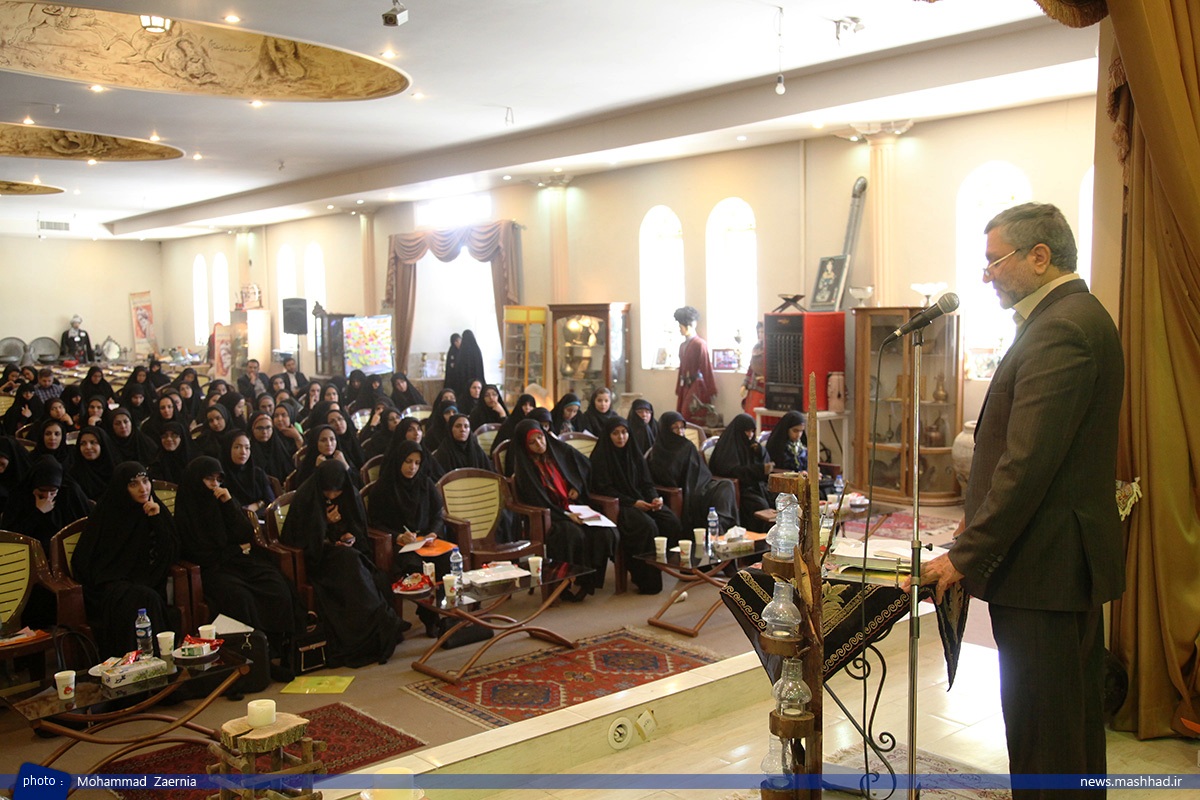 Meeting of Young Women and the Mayor - © Municipality of Mashhad
Meeting of Young Women and the Mayor - © Municipality of Mashhad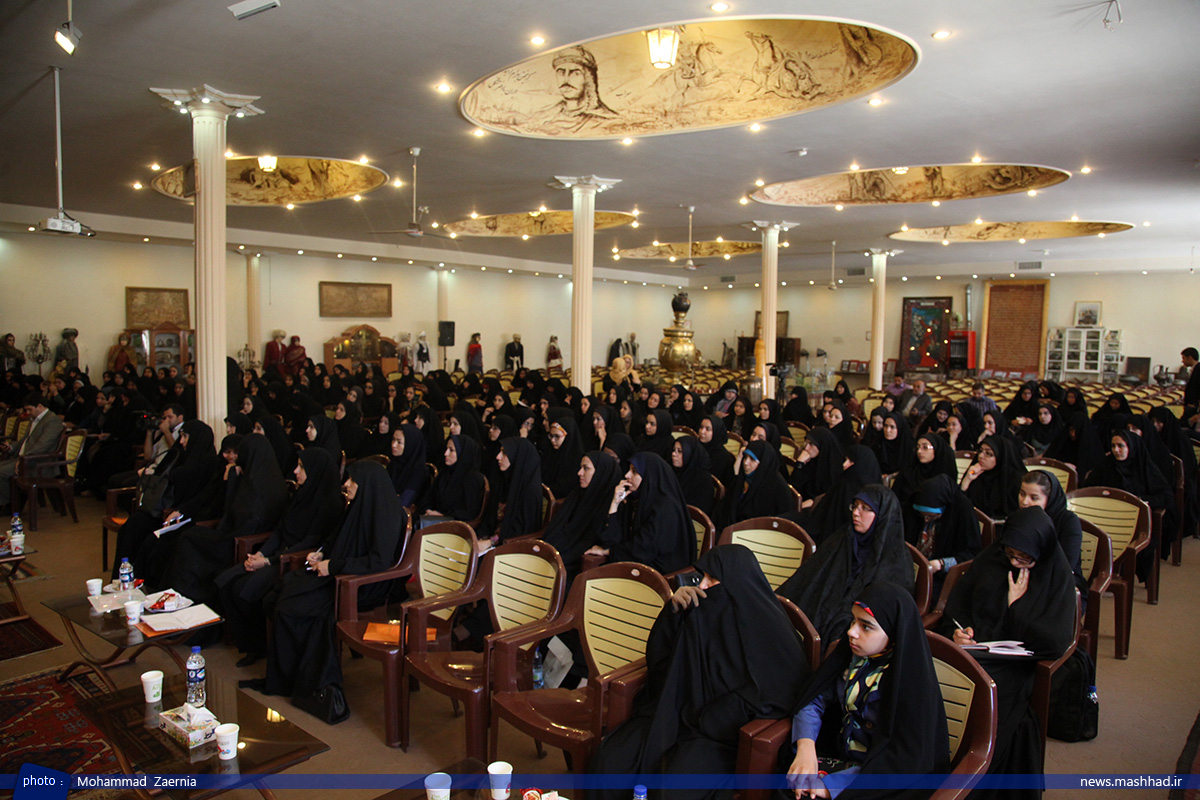 Meeting of Young Women and the Mayor - © Municipality of Mashhad
Meeting of Young Women and the Mayor - © Municipality of Mashhad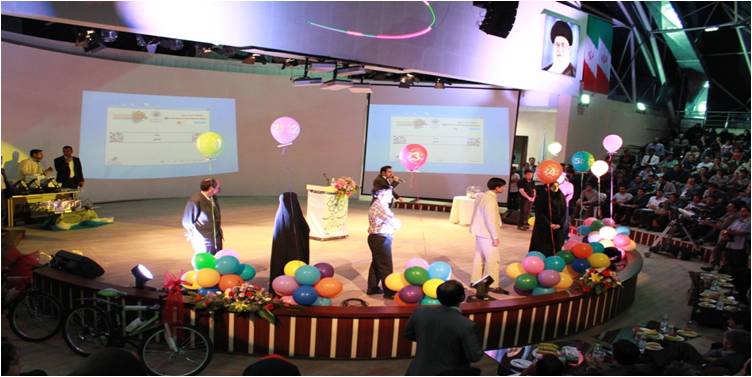 Welcoming Spring Festival - © Municipality of Mashhad
Welcoming Spring Festival - © Municipality of Mashhad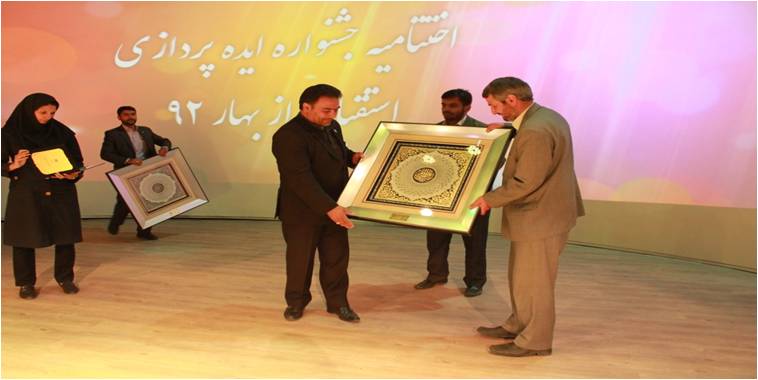 Welcoming Spring Festival - © Municipality of Mashhad
Welcoming Spring Festival - © Municipality of Mashhad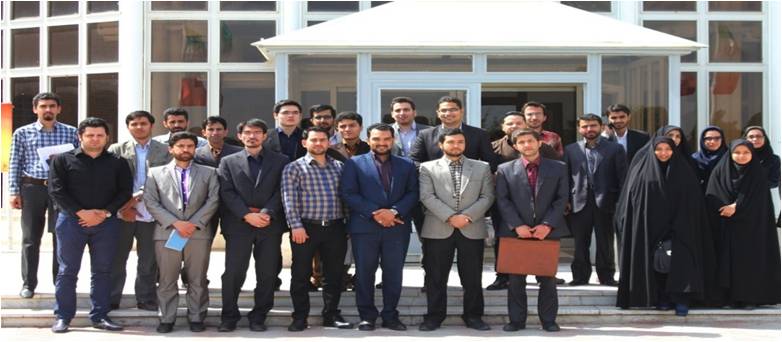 Young Consultants - © Municipality of Mashhad
Young Consultants - © Municipality of Mashhad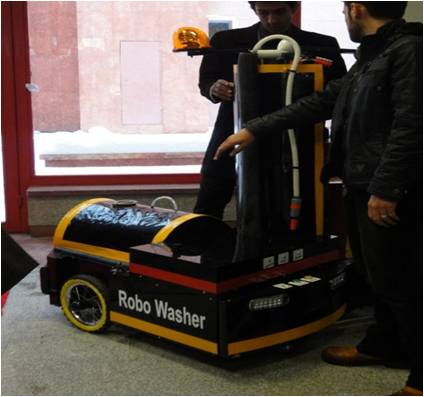 Future City Festival - Initiatives - © Municipality of Mashhad
Future City Festival - Initiatives - © Municipality of Mashhad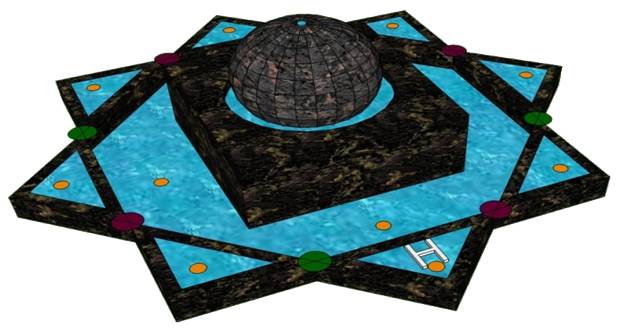 Future City Festival - Initiatives - © Municipality of Mashhad
Future City Festival - Initiatives - © Municipality of Mashhad
City
Mashhad
Main actors
Local Government, Research Institutes / Universities
Project area
Neighborhood or district
Duration
Ongoing since 2007
Youth Scientific Cooperation in Urban Management to empower Youth in the decision-making process
Young Consultants Group (YCG) of Municipality of Mashhad was established in 2007. It is a non-governmental and apolitical group of the youth living in Mashhad. YCG attempts to empower the youth via designing and implementing scientific programs in urban management in order to increase the role of youth in decision-making.
YCG attracts educated and innovative youth in order to use their knowledge, energy and creativity to solve urban issues and increase their experiences.
Consequently, the Young Consultant group cooperates with universities, academic centers, theological schools, schools, etc. Their objectives are to:
-
Provide social capital including creative and young connections in urban management;
-
Empower the youth in urban management;
-
Organize youth scientific activities in urban management.
According to the United Nations (http://social.un.org/index/Youth/FAQs.aspx), "the majority (almost 85%) of the world’s youth live in developing countries, with approximately 60 percent in Asia alone." In addition, this percentage is predicted to increase to 89.5% by 2025. It is therefore impossible for local governments to ignore this vast population, because, after all, the youth are fundamental stakeholders in the development of their metropolitans since they are vital rights-holders, who can become energetic and creative participants in their respective societies if given the chance, and they are often courageous pioneers. Hence, it is imperative for local governments to make youth issues a major part of their "development agendas and policies".
The local governments in this regard can take the lead by actively shaping and developing the educated youth through mentoring programs, on-site training, creating dynamic and productive forums for the youth to positively express and showcase their abilities and making them a part of the policy-making of their cities. Through this revolutionary and productive method, metropolitans will gain citizens who are able to positively contribute to their societies on all grounds (economically, politically, socially, academically, and so forth). Accordingly, YCG has reached to a Scientific Cooperation Model in order to sensitize, activate and empower the youth in urban management.
Vision:
According to the vision of Iran in 2025, Young Consultants Group of Municipality of Mashhad is the leading center of empowerment, creativity and scientific cooperation of youth in urban management.
Mission:
Young Consultants Group facilitates interaction between the youth and local authorities, with an apolitical, non-profit and non-executive approach to upgrade youth scientific cooperation in urban management.
Main Objectives:
-
Increase social capital
-
Increase human capital
-
Increase productivity
Policies:
-
Youth active cooperation and effective collaboration;
-
Youth empowerment;
-
Youth involvement in decision-making.
Young Consultatn Group has a decision-making council. The members are high-level urban managers like Head of City Council, Deputy of Planning and Development, Deputy of Society and Culture, Head of Young Consultants Group, young mangers of the municipality, youth policy experts and the YOUTH.
YCG has different departments including Ideation and Virtual Platform Department, Public Relation Department, Planning and Evaluation Department, Youth and Community Department, Training and Educational Department, and Administrative and Financial Department. Respectively, the mission of Youth and Community Department is to increase social capital; Training and Educational Department attempts to increase productivity; and the role of Planning and Evaluation Department is to increase human capital.
Young Consultants Group has got three main connections including urban mangers, young citizens, and scientific community. There are various different programs designed and implemented for each group.
Urban managers:
-
Question: The youth question and criticize managers.
-
Idea: Registering, evaluating and sending the youth ideas to managers to be utilized by them), from 2010 to 2014, 21278 ideas have been registered.
-
Proposals: An economically and operationally feasible idea which is promoted and presented to the related organization for enforcement.
-
Studies and researches: A clear and objective description of an idea or proposal, which refers to the necessity , methods and positive feedbacks of implementing the idea.
-
Expert assessment: Assessing and reviewing studies or operational projects to provide the municipality and the city council with supplementary and revisionary recommendations which help them make better decisions about evaluated issues and
-
Inventions and innovations: The youth novel product based studies (inventions and innovations) on the realm of urban management
-
Articles: Publishing and presenting articles written by the Young Consultants Group members in seminars, professional and scholarly journals of urban management
-
Book: Writing educational and electronic books on youth issues and city
Young citizens:
-
Professional development:Participating in professional seminars and academic festivals, meetings with managers and professional fairs
-
Gaining experience: The youth readiness to learn from the experience, information, technical knowledge and work patterns of the managers
-
Training: Training workshops and classes to develop the youth requisite skills
-
Technical visits and tours: Educational visits, assessing and reviewing urban projects in order to upgrade the youth knowledge of scientific and industrial developments of the country and the process of operational projects
-
Implementing urban projects: Providing the opportunity for the youth to participate in projects
-
Professional workgroups : Setting up thematic workgroups of professional youth to present new ideas and studies and solve city and municipality issues
-
Networking: Professional networking for interlocution among citizens, specially the youth, in order to benefit from their capabilities in the realm of urban management
Scientific community:
-
Knowledge-based companies: Presenting urban issues to knowledge-based companies to conduct research on them (recently launched)
-
Specialized NGOs: Supporting and collaborating with specialized NGOs' programs concerning the youth and city
-
Professors and experts: Planning for the effective use of faculty members and expert in training the youth and solving urban issues
-
Research centers: Carrying out joint projects with research centers on the youth issues and city
-
University: Conducting joint activities with universities to hold seminars, workshops, visits, students meetings with managers, research and thesis on youth and urban issues
-
Theological schools: Cooperating with theological schools to review and analyze urban issues
-
Pupils : Identifying, attracting and empowering elites to participate in the Pupils Festival of Ideas and Inventions
-
If local authorities want to solve urban issues and youth issues in cities, they should use the youth capabilities. Young consultant group increases Youth Scientific Cooperation in Urban Management through these activities. Since more than 80 % of the youth in Mashhad are educated, therefore, our model is based on scientific cooperation. Urban managers, young citizens and scientific communities are the core stakeholders of YCG.
The municipality of Mashhad allocates the budget to Young Consultants Group according to the Action Plan. However, there are many joint programs between YCG and different parts of the municipality (via young consultants working in deputies, regions and organizations) or other institutions like universities, research centers and etc. Consequently, the budget is allocated cooperatively. Mentioning the human resources of YCG that participate in different programs, there are 39 young consultants, 744 activists cooperating in special committees and 4000 young volunteers.
YCG has recently achieved satisfactory outcomes such as upgrading the youth collaboration and cooperation in urban management and increasing the interactions between the youth and municipality that has enhanced the efficiency in urban management and municipality.
- Presenting 224000 scientific studies, ideas and innovations conducted by the youth in urban management arena;
- Cooperating with 72000 educated youth from the beginning till now in urban management
- Gathering 3000 scientific articles in urban management
- Publishing 15 books and producing 13 software in urban management´
- Establishing Ideation Council in Mashhad urban management
- Providing checklist of metropolises discourse
- Negotiating contracts with scientific and academic centers
- Holding 17 student festivals with 16627 participants
- Holding 31 joint seminars in urban management arena
- Holding Urban Management Summer School with 115 students
- Holding 184 meetings with urban managers and 98 special meetings with professors and teachers
- Supporting 118 articles and thesis
- Holding 283 technical visits of urban projects, 7295 students participated
- Attracting 6484 students as activists to the municipality and empowering the youth in urban management, providing human and social capital.
In the beginning, one of the significant problems of Young Consultants Group was to gain acceptance of the youth role in urban management. Actually, the average age of the municipality was rather old and did not accept the youth creativity and new ideas and the youth were not very welcomed. Moreover, the youth themselves did not participate in urban management and did not provide solutions. However, the previous mayor of Mashhad believed in the importance of youth participation and their initiatives. Consequently, YCG was established and commenced to sensitize both the youth and the urban mangers about the importance of youth participation in urban management. However, the problem is solved by now since the youth have proven themselves.
Another problem was that the managers did not paid sufficient attention to the youth new ideas and initiatives. We reached three main problems: first, more than half of the proposed studies were not according to managers' needs. Second, some of the youth perspectives were not practical. Third, we concluded that the studies and ideas should not be only presented to mangers; rather the experts and deputies should be involved in order to make the studies more practical. Accordingly, we asked the managers to propose their challenges and issues. Then, we provided special committees of students, professors and experts in urban management to provide ideas and new studies.
The other problem is that the students and academics are not that much familiar with executive problems in the city which lead to the gap between universities and urban managers. YCG held training courses and technical visits of urban projects to solve this problem.
Finally, the problem is lack of unity management. According to various policies and lack of organizational position, YCG activities and programs are influenced by different managers' opinions and tastes and therefore, the efficiency reduces. To solve the problem, we wrote vision, missions, objectives and strategies.
When the importance of youth participation is highlighted, it should be mentioned that no similar approaches and methods are useful for everywhere. Each organization and ministry has localized youth participation based on their own objectives; consequently, there is various numbers of models. In Iran, there have been 5 major models with corresponding approaches and different objectives such as team building, decision-making to enhance the quality of studies and special programs, cooperation in social and cultural arena specially citizens' culture, improve connection between the youth and municipality.
According to the structure and objectives of YCG, it is attempted to keep the potentials of other groups and avoid the weaknesses. Therefore, the Scientific Cooperation Model was selected for YCG of Municipality of Mashhad. Accordingly, a book named "Youth Cooperation Model in Urban Management" is published by Mr. Saeed Ghasemi (the former head of YCG).
The YCG wants to introduce YCG Model to other metropolises in order to increase youth role and collaboration in building tomorrow's cities via international platforms like Metropolis, Islamic Conference Youth Forum for Dialogue and Cooperation and other international organizations like UN.
The main success factors are as follow:
- Providing opportunities to spend time appropriately among the youth;
- Providing healthy and friendly scientific completion to improve the youth. The youth are empowered gradually;
- Providing interactions between universities and municipality and students' internships opportunities;
- Increasing creativity and initiatives in urban management through the youth new ideas;
- Rejuvenating urban management by using the youth dynamism, exhilaration, creativity, and energy.
- Providing interactions between the youth and urban management to provide appropriate solutions for urban issues via the youth ideas, studies and proposals.
Ghasemi, S. 2014, Youth Cooperation Model in Urban Management, Ketabdare Toos, Mashhad
Categories
External links / documents
On Map
The Map will be displayed after accepting cookie policy
